The Independent's journalism is supported by our readers. When you purchase through links on our site, we may earn commission.
Sian Conway-Wood’s Gamechangers: The truly sustainable brands and products she recommends
Gamechangers: We asked the founder of #EthicalHour how to set the greenwashing brands apart from the trustworthy ones
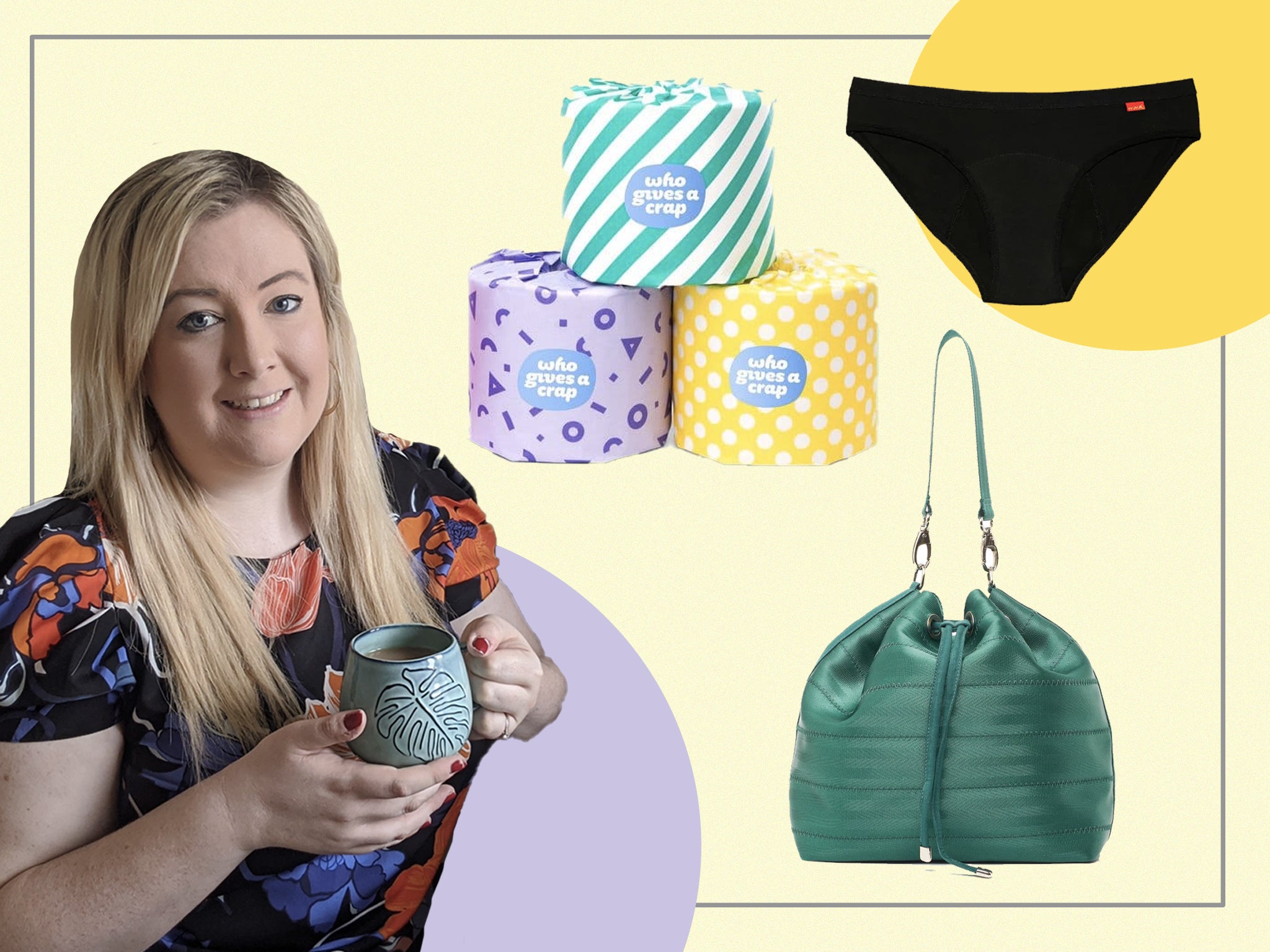
As the founder of Twitter’s #EthicalHour, and the Green and Eco Influencer of the Year in 2018, Sian Conway-Wood is a powerful voice when it comes to tackling the climate crisis and real ethical living. Over the past few years, Sian’s become an expert at knowing whether a brand’s sustainable or ethical claims are as real as they sound.
Like many of us, Sian saw there was a huge problem when it comes to how unsustainable our habits, society and world has become. Trying to do something about it is also extremely overwhelming, with so many mixed messages from big brands and an awful lot of greenwashing. If you’re unfamiliar with the term, this is when companies pretend to be more sustainable than they actually are, by using language, pictures or other means to suggest they have better eco-credentials than they actually do.
Sian says that rather than huge corporations taking steps to change its own packaging – for example by removing the flimsy plastic that can’t be recycled and which ends up in landfill – these big companies instead often insist on putting the onus on to the consumer when it comes to recycling.
So our buying power says a lot. But knowing which brands are actually worth your money is hard. At the beginning of her quest, Sian set about making changes, like switching to a reusable coffee cup and moving over to a greener enegry supplier. But, then wondered: “What difference are my small changes really making?”
Read more:
- Swap to this eco-friendly loo roll that helps save trees
- Earth Day: The IndyBest team’s favourite eco-friendly products
- The B Corp certified brands doing good for the planet
Her new book, Buy Better, Consume Less: Create Real Environmental Change (£14.99, Waterstones.com) breaks it all down for us in easy-to-read chapters. As well as talking about your buying power and the swaps you can make, Sian also advises on how to use your voice – as well as recommends practical tips that we can all use in order to hold brands accountable, and to make real, long-lasting change that has a positive impact on the climate crisis.
For Earth Day 2022, we asked Sian about the brands and products that really are worth buying today, and are doing what they say on the tin. These are the top 10 that Sian wholly recommends.
1Favourite item of clothing from a slow fashion brand: You Underwear women’s organic cotton boy shorts (pack of five)

As a recovering fast fashion addict, I try not to buy new clothes to be honest – my wardrobe is still overflowing from my fast fashion days! But the obvious essential exception is underwear, and for that You Underwear is my go to brand.
It recently became a B Corp, and is actually the highest scoring fashion brand in the world! It really deserves it too, as the company is very committed to its ethical standards. Sarah, the founder, personally visits the factory it uses in India – plus, it’s certified Organic, Fairtrade, and plastic-free, as well as body positive. It also doesn’t use any models or airbrushing in its photography and is also working to become size inclusive, too (which isn’t always easy for small fashion brands). I love that each pair has affirmations sewn into the waistband to remind you that “You make a difference” too!
2Best palm oil free brand: Sugar scrub the hedgerow (blackberry and honeysuckle)

Bloomtown is a certified palm oil free beauty brand, and it’s a big part of the brand’s mission. The founders Preya and Med were inspired to start the business after spending time in Indonesia and witnessing firsthand the devastating impact of deforestation there. The brand’s sugar scrubs are fantastic – the Hedgerow one is my favourite, as it smells incredible! It’s also cruelty free, and the founders donate 10 per cent of its profits to environmental and animal rescue charities.
3An alternative to non recyclable coffee pods: Blue Goose Swiss water decaf coffee, bean and ground

My favourite coffee comes from Blue Goose. The founders have worked incredibly hard on its sustainability promises, but without sacrificing the flavour and quality of its coffee – with lots of its pods having won Great Taste awards. It sells compostable Nespresso pods, which are a much better alternative (and if you’ve got a food waste collection in your local area, you can just pop the old pods in there rather than them heading to landfill), or you can opt for bean or ground in plastic-free pouches. Its coffee is ethically sourced and contributes to community development too, so you know the people in its supply chain are well looked after.
Until I came across Blue Goose, I didn’t realise that the decaffeination process to make decaf uses the same solvents as paint stripper, which is really scary! Blue Goose has a decaf range made with spring water instead, so there’s no nasty chemicals involved.
4A brand doing great things with its packaging: Who Gives A Crap! toilet roll (pack of 24)

This would definitely have to be Who Gives A Crap! Its bamboo toilet paper is completely plastic-free, and comes individually wrapped in really colourful packaging. It looks great in the bathroom and is always a talking point when guests come round – which encourages other people to make this eco switch too. In our friendship group we often exchange birthday gifts wrapped in the recycled packaging!
5The sustainable swap you now can’t live without: Seep eco sponge with scourer (pack of four)
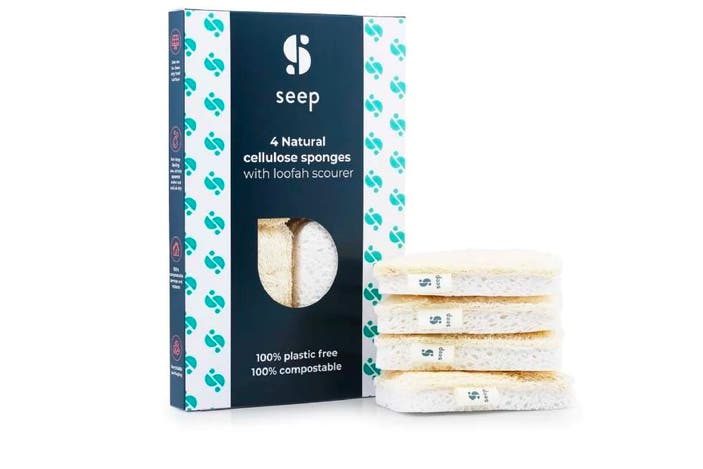
Last year, we switched away from plastic dish sponges in favour of Seep. Its sponges are made from cellulose wood pulp and raw loofah fibre, and they can go in the home compost once they’re at the end of their life. I have to admit, I was a bit sceptical about this one at first, but they work really well – even when food is stubbornly baked on. They don’t release any harmful microplastics, and because the sponge retains washing up liquid, you end up using less, which is a good money saver, too.
6Best refillable beauty product: Pure Lakes rose, jojoba and frankincense facial hydration cream, 30ml

Pure Lakes moisturiser is my favourite – it feels so luxurious and leaves my skin really soft. It’s a small business but it has a refill service so you can return your packaging to be refilled, and receive a discount on your next purchase. It’s great to see small businesses commit to eco–credentials and demonstrate to big brands that schemes like this are both possible and feasible.
7A brand keeping waste out of landfill: Belo bucket bag
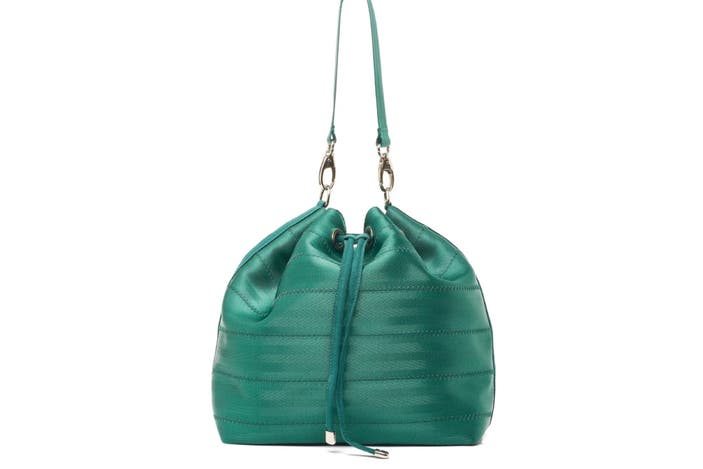
One of my favourite circular brands is Belo. Its handbags are stunning, and Belo is turning waste materials into something beautiful. I love the bucket bag which is made from decommissioned seatbelts! It’s a waste material that most people wouldn’t think of, but Belo has built a whole range of beautiful accessories from them. As a brand, it give back to causes in the community where the materials are sourced and the bags are made (Belo Horizonte in Brazil), and when you’re done with your bag, you can send it back to the brand for recycling, so it doesn’t end up in landfill when you’re finished with it either.
8The most affordable sustainable swap: Wuka period pants

The sustainable swap that I think has saved me the most money is period pants. I put off making this switch for ages, but always felt guilty about the plastic in tampons, so after several friends recommended them to me, I made it my New Year’s Resolution. And I’m so glad I switched! Although there’s an upfront cost involved, it’s saving me a lot of money every month. They’re comfortable, easier to manage than you might think, and save a lot of money over the course of a year.
9The book you recommend people read: Is It Really Green? by Georgina Wilson-Powell

Making sustainable swaps can be so confusing, and sometimes you think you’re choosing a better option – only to find out it’s actually worse! I’m so grateful that Georgina Wilson-Powell, editor of Pebble Magazine, wrote her book, Is It Really Green? It helps get to the heart of so many everyday eco dilemmas that we all face and is a really handy guide to making truly sustainable swaps.
10A sustainable kids toys brand: Whirli monthly toy subscripton
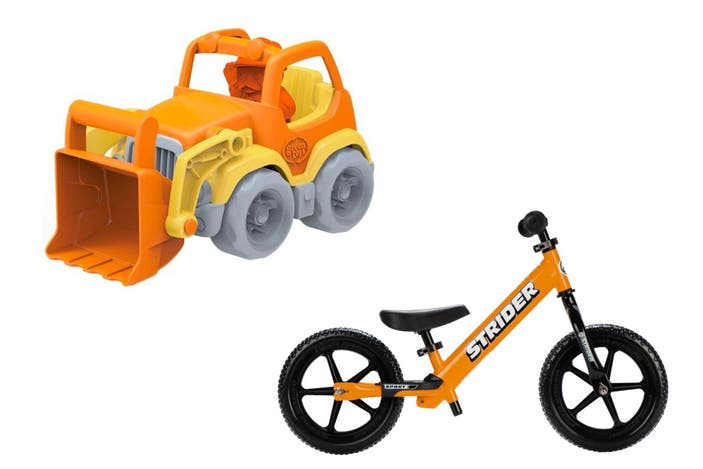
Another brand I’ve switched to that I absolutely love is Whirli. It’s a toy rental subscription, and since I have a one year old daughter, it’s become a real sustainable staple in our home! We pay £20 a month and can switch the toys as often as we like. It’s been such a good way of keeping up with her interests as she discovers the world, and upgrading her toys as she grows, but without all the plastic waste or storage requirements we’d need if we were buying them all.
Sian Conway-Wood is the author of “Buy Better Consume Less: Create Real Environmental Change”, published by Icon Books (£14.99, Waterstones.com).
Voucher codes
For the latest discounts on B Corp brand products, try the links below:
Looking for more inspiration? These are the sustainable brands to bookmark, from fashion to homeware





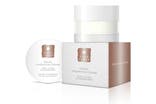
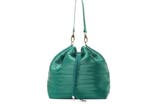



Bookmark popover
Removed from bookmarks